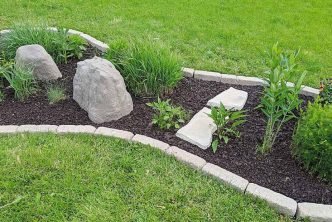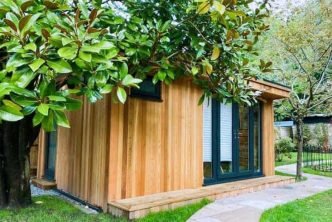Did you know that water damage costs Americans $13 billion dollars every year? It’s true and if you own a home, you need to do all you can to ensure water damage prevention.
Keep reading to find five simple tips on how to prevent basement flooding.
Table of Contents
1. Do Your Yardwork
Rain gutters and downspouts full of leaves and debris are a common cause of household flooding. If they get clogged, water can build up which can cause leaks into your basement.
Position your downspouts so they’re not facing the foundation of your home. This ensures that water from rain, storm, and snowmelt can flow freely without pooling against the foundation. The downspouts should be positioned 3 feet away at the bare minimum.
2. Invest in a Sump Pump
Think of a sump pump as an extra-large drain in your basement. It works by pumping out any of the water that may seep in during storms or regular household seepage.
Not only will a sump pump provide flood protection but is a great defense against sewage backups too. Some homeowners install them to keep humidity levels and mold growth at bay.
3. Focus on the Exterior of Your Home
When it comes to water, gravity rules. If your home is flooding, your landscaping may be to blame. Be sure to slope the landscaping away from your home. A gentle slope away from the foundation ensures gravity leads the water where it needs to be (read: not your basement).
Your roof is another key component in water damage protection. If your roof is in disarray, it may be time to get a replacement. If water comes in through roof leaks, gravity will ensure it finds its way to your basement.
If you live in an area with a lot of precipitation, you may want to get additional green space around your property. Shrubs, plants, flora, and grass will absorb water and boost drainage.

4. Inspect Your Foundation
A cracked foundation is an invitation for trouble. Not only can it cause flooding, but it can lead to structural hazards and pests.
Take a walk around the outside of your home to see if there are any concerning areas in the foundation. Epoxy is great for filling exterior cracks if you find them. Masonry sealer is perfect for filling any cracks on the basement walls or floors.
Of course, not every type of foundation crack is a cause for concern, but it’s always important to be aware of the state of your home.
5. Insure Yourself
Sadly even the best flood insurance won’t protect your home from floods. It is indispensable, however, if the unthinkable were to happen. Invest in the best private flood insurance for peace of mind.
Learning How to Prevent Basement Flooding
Now that you know how to prevent basement flooding, it’s time to take action. It doesn’t take a lot of time to protect your home, but it can save you thousands of dollars in the long run.
Keep reading our blogs for more tips for homeowners.





